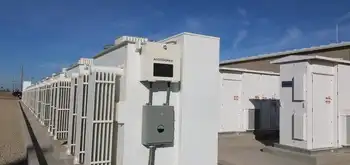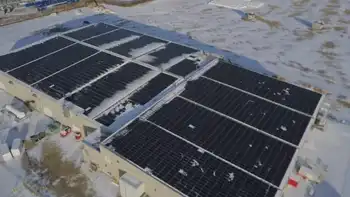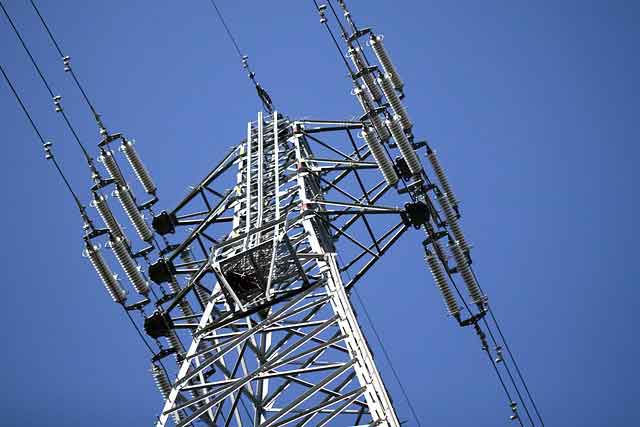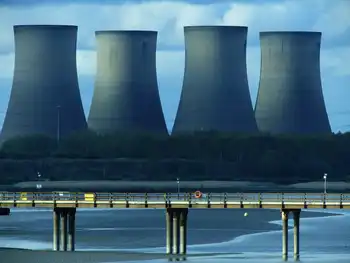Michigan utilities propose more than $20M in EV charging programs
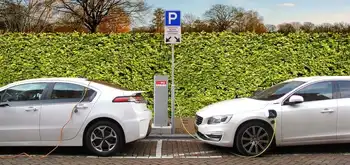
Protective Relay Training - Basic
Our customized live online or in‑person group training can be delivered to your staff at your location.

- Live Online
- 12 hours Instructor-led
- Group Training Available
Michigan EV time-of-use charging helps DTE Energy and Consumers Energy manage off-peak demand, expand smart charger rebates, and build DC fast charging infrastructure, lowering grid costs, emissions, and peak load impacts across Michigan's distribution networks.
Key Points
Michigan utility programs using time-based EV rates to shift charging off-peak and ease grid load via charger rebates.
✅ Off-peak rates cut peak load and distribution transformer stress.
✅ Rebates support home smart chargers and DC fast charging sites.
✅ DTE Energy and Consumers Energy invest to expand EV infrastructure.
The two largest utilities in the state of Michigan, DTE Energy and Consumers Energy, are looking at time-of-use charging rates in two proposed electric vehicle (EV) charging programs, aligned with broader EV charging infrastructure trends among utilities, worth a combined $20.5 million of investments.
DTE Energy last month proposed a $13 million electric vehicle (EV) charging program, which would include transformer upgrades/additions, service drops, labor and contractor costs, materials, hardware and new meters to provide time-of-use charging rates amid evolving charging control dynamics in the market. The Charging Forward program aims to address customer education and outreach, residential smart charger support and charging infrastructure enablement, DTE told regulators in its 1,100-page filing. The utility requested that rebates provided through the program be deferred as a regulatory asset.
Consumers Energy in 2017 withdrew a proposal to install 800 electric vehicle charging ports in its Michigan service territory after questions were raised over how to pay for the $15 million plan. According to Energy News Network, the utility has filed a modified proposal building on the former plan and conversations over the last year that calls for approximately half of the original investment.
Utilities across the country are viewing new demand from EVs as a potential boon to their systems, a shift accelerated by the Model 3's impact on utility planning, potentially allowing greater utilization and lower costs. But that will require the vehicles to be plugged in when other demand is low, to avoid the need for extensive upgrades and more expensive power purchases. Michigan utilities' proposal focuses on off-peak EV charging, as well as on developing new EV infrastructure.
While adoption has remained relatively low nationally, last year the Edison Electric Institute and the Institute for Electric Innovation forecast 7 million EVs on United States' roads by the end of 2025. But unless those EVs can be coordinated, state power grids could face increased stress, the National Renewable Energy Laboratory has said distribution transformers may need to be replaced more frequently and peak load could push system limits — even with just one or two EVs on a neighborhood circuit.
In its application, DTE told regulators that electrification of transportation offers a range of benefits including "reduced operating costs for EV drivers and affordability benefits for utility customers."
"Most EV charging takes place overnight at home, effectively utilizing distribution and generation capacity in the system during a low load period," the utility said. "Therefore, increased EV adoption puts downward pressure on rates by spreading fixed costs over a greater volume of electric sales."
DTE added that other benefits include reduced carbon emissions, improved air quality, increased expenditures in local economies and reduced dependency on foreign oil for the public at large.
A previous proposal from Consumers Energy included 60 fast charging DC stations along major highways in the Lower Peninsula and 750 240-volt AC stations in metropolitan areas. Consumers' new plan will offer rebates for charger installation, as U.S. charging networks jostle for position amid federal electrification efforts, including residential and DC fast-charging stations.





